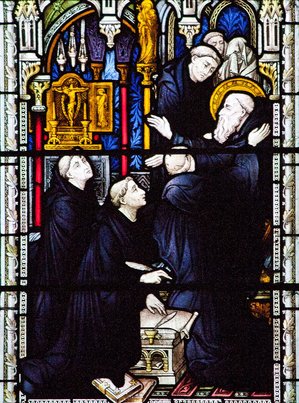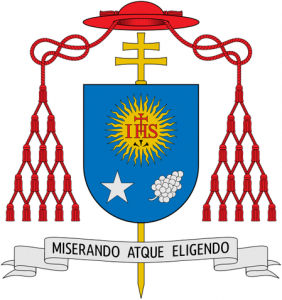We honor the memory of a venerable Benedictine monk and Churchman, Saint Bede. He is the only English Doctor of the Church and a fine example of monastic learning and holiness. Most people relate to him as the historian of the English Church because of his famous work, Historia Ecclesiastica.
Christ was his King. No other lord
Did Bede aspire to serve.
No other love could claim the heart
He gave without reserve.
From boyhood onward his delight
Was in the scriptures found,
Or singing praise to him who hung
Upon the Rood, thorn-crowned.
Like Easter night, Bede’s quiet cell
Saw Christ arising there;
And when Ascension dawned at last
The Son shone bright and fair.
To Christ the King of glory sing,
And God the Father praise,
Whose Spirit dwells in peaceful hearts
And guides them in his ways.
The text is an ancient monastic hymn. It was translated by Dame Catherine of Holy Trinity Monastery, Herefordshire, UK.


